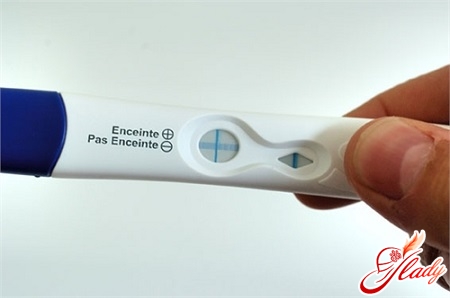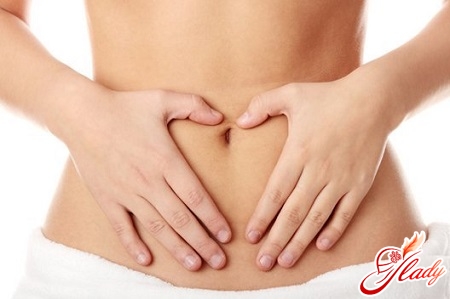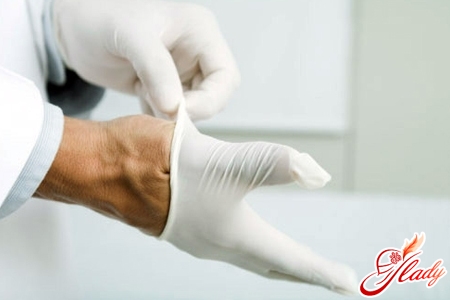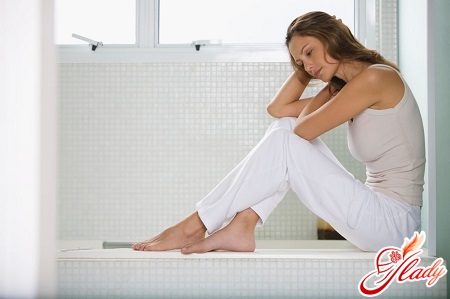
Many people know what hemorrhoids are, but they thinkhis disease, although unpleasant, is not very serious. And this is one of the main mistakes, which often leads to the disease becoming neglected, requiring complex surgical intervention. Let's find out in more detail what this disease is and how to treat hemorrhoids.
Causes of hemorrhoids
What are hemorrhoids?This is a disease associated with the enlargement of the blood vessels and tissues of the rectum. The formation of so-called hemorrhoidal nodes and their prolapse through the anus is observed. In this case, bleeding, painful sensations, and discomfort during defecation may be observed. This disease is very common today, but everyone has it at different stages. It may not even be noticed, especially at the initial stage, with internal, not external hemorrhoids. The reasons for the appearance of such an unpleasant disease can be very different. Among the main ones, it is necessary to note:
- malnutrition, lack of fiber in the diet;
- Constant constipation, which increases the pressure in the rectum;
- hereditary factors;
- in women it can be childbirth, often hemorrhoids appear during pregnancy;
- prolonged sitting on the toilet;
- a sedentary, inactive way of life (usually such a disease affects office staff);
- excessive physical exertion;
- abuse of alcoholic beverages, spicy food.

Symptoms of hemorrhoids and treatment at different stages
To treat hemorrhoids, you must first determine its symptoms. The course of the disease can be divided into several separate stages:
- Chronic hemorrhoids are divided into 4 stages:1 - bright red bloody discharge, 2 - prolapse of nodes, 3 - prolapse of nodes requiring medical intervention, 4 - prolapse requiring surgical intervention, blood clots;
- acute hemorrhoids are divided into 3 stages:1 - formation of nodes without inflammatory processes and pain, 2 - occurrence of inflammatory processes, 3 - inflammation around hemorrhoids.
To accurately determine the stage and formdisease, it is necessary to undergo an examination, after which the doctor will prescribe the appropriate treatment. This may be taking medications at home, warm baths. In difficult cases, inpatient treatment is necessary. Homeopathic treatment Homeopathy is an alternative treatment method that often brings quick and significant relief. Unlike traditional medicine, there are practically no contraindications, the procedures can be performed at home with confidence in their effect. But self-medication is not allowed, it is necessary to consult a homeopathic doctor who will prescribe medications. To get rid of itching, you can use Capsicum Annum. In any case, the selection of such a drug should be carried out only under the supervision of a doctor, based on the symptoms and general condition of the patient. If the treatment is carried out at home, then a preliminary consultation with a proctologist is also required. You cannot simply buy drugs without a doctor's advice, since hemorrhoids are a serious disease, the consequences of such self-treatment can be unpredictable.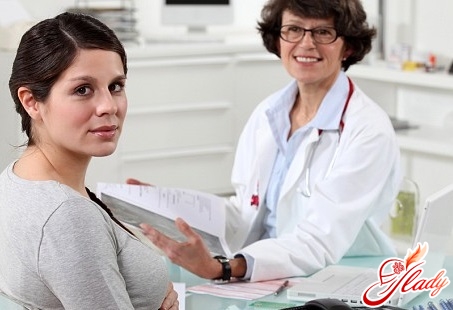 Treatment of chronic form At 1-2 stagesChronic hemorrhoids can be treated with invasive methods. These are cryotherapy, photocoagulation, ligation using latex rings, sclerotherapy. But these methods are contraindicated in such situations:
Treatment of chronic form At 1-2 stagesChronic hemorrhoids can be treated with invasive methods. These are cryotherapy, photocoagulation, ligation using latex rings, sclerotherapy. But these methods are contraindicated in such situations:
- presence of anal fissures;
- presence of thrombosis nodes;
- the presence of acute paraproctitis, inflammatory processes in the perineum and in the anal canal.
The treatment itself consists of the following:
- Sclerotherapy is a method ofwhich sclerosing agent is introduced into the site in an amount up to 2 mm. This substance causes gluing, flattening of the vessels, that is, it brings considerable relief. At the same time, you can only work with 2 nodes, otherwise a strong pain syndrome will develop. Repeated intervention can be carried out only after 2 weeks;
- The use of latex rings suggests theiroverlapping in the area of the node to shut off its power. After this, the nodes together with the rings are removed (when the tissues die). It happens about a week after surgery. In some cases it is recommended that the operation be repeated;
- photocoagulation is a procedure in whichthe time of which an optical fiber is inserted into the anus. Under the influence of thermal energy, the nodes of the node are glued together. The tip should be brought to each node from 2 to 6 times;
- cryotherapy is one of the safestprocedures. In this case, the node is simply frozen, after it thaws, the tissue dies, leaving a small wound. This intervention is performed under local anesthesia, it does not take much time.
Some procedures, such as minimally invasive procedures,General anesthesia is not required, but it all depends on the complexity of the disease. Cryotherapy or laser intervention may require epidural anesthesia. Such treatment methods cannot be called a panacea, since they do not eliminate the main cause of hemorrhoids, but only reduce pain, remove the node. Treatment of the thrombosed form If the thrombosed formhemorrhoids with painful sensations, then different treatment options are possible. When the node is only slightly enlarged, the doctor will recommend warm baths, some laxatives. But if the pain is quite severe, and the node is large, then a procedure to remove the blood clot is often prescribed. Such a procedure is performed only in a hospital setting, although it usually does not take much time. In no case should you try to do this yourself, since not only is it possible for the disease to develop strongly, but also for infection, penetration of the infection into other organs! The blood clot is removed using local anesthesia, while the patient does not feel anything. A piece of bandage is inserted into the node, which helps stop the bleeding, prevents further thrombus formation. A bandage is also applied to the outer surface of the node, which can be removed 6-12 hours after the surgery. Often the doctor prescribes sitz baths with warm water. The pain sensations after such a procedure disappear, but if there is still a feeling of discomfort, then patients are prescribed acetaminophen, ibuprofen, which have an analgesic effect. In case of prolapse of hemorrhoids, that is, prolapse, a doctor's intervention is necessary; you cannot do anything on your own. In most cases, such intervention ends with the doctor carefully adjusting the prolapsed part, pressing on it with a finger. But there are cases when the node is irreducible or falls out after the procedure. In this case, only surgical intervention is possible, which can significantly alleviate the condition. If the prolapsed node remains in place, that is, in a state compressed by the anus, then necrosis may develop. The tissue stops receiving the blood it needs for nutrition, and gradually dies. This leads to such an unpleasant situation as infection of hemorrhoids, infection entering other organs with the bloodstream. This not only negatively affects overall well-being, but can also cause dangerous diseases. In this case, surgical intervention is necessary, treatment in a hospital setting.
Treatment of the thrombosed form If the thrombosed formhemorrhoids with painful sensations, then different treatment options are possible. When the node is only slightly enlarged, the doctor will recommend warm baths, some laxatives. But if the pain is quite severe, and the node is large, then a procedure to remove the blood clot is often prescribed. Such a procedure is performed only in a hospital setting, although it usually does not take much time. In no case should you try to do this yourself, since not only is it possible for the disease to develop strongly, but also for infection, penetration of the infection into other organs! The blood clot is removed using local anesthesia, while the patient does not feel anything. A piece of bandage is inserted into the node, which helps stop the bleeding, prevents further thrombus formation. A bandage is also applied to the outer surface of the node, which can be removed 6-12 hours after the surgery. Often the doctor prescribes sitz baths with warm water. The pain sensations after such a procedure disappear, but if there is still a feeling of discomfort, then patients are prescribed acetaminophen, ibuprofen, which have an analgesic effect. In case of prolapse of hemorrhoids, that is, prolapse, a doctor's intervention is necessary; you cannot do anything on your own. In most cases, such intervention ends with the doctor carefully adjusting the prolapsed part, pressing on it with a finger. But there are cases when the node is irreducible or falls out after the procedure. In this case, only surgical intervention is possible, which can significantly alleviate the condition. If the prolapsed node remains in place, that is, in a state compressed by the anus, then necrosis may develop. The tissue stops receiving the blood it needs for nutrition, and gradually dies. This leads to such an unpleasant situation as infection of hemorrhoids, infection entering other organs with the bloodstream. This not only negatively affects overall well-being, but can also cause dangerous diseases. In this case, surgical intervention is necessary, treatment in a hospital setting.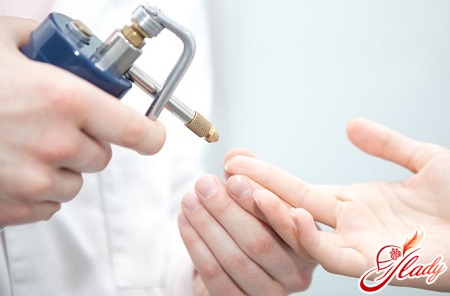
When is surgical treatment performed?
Treating hemorrhoids is sometimes only possiblesurgical method. It is recommended for stages 3-4 of the disease. Surgical intervention is the excision of hemorrhoids with subsequent suturing of the feeding vessels. The postoperative period, which the patient must spend in the hospital under observation, is approximately 7-9 days, depending on the general condition and complexity of the intervention. The period of incapacity for work after such an operation is 14 days. The first time after the operation, pain in the abdomen, some discomfort in the anus, suppuration of postoperative scars are possible. In addition, it should be noted that in the remote period, such phenomena as relapses, disturbances in the expansion of the anus, weakening of its expanding function can be observed. To minimize such consequences, it is necessary to strictly follow all the doctor's recommendations for the postoperative period, adhere to a proper diet. For the treatment to be effective, it is necessary to follow some special recommendations after surgery:
- take seated baths with warm water 3 times a day, after each bowel movement (especially if the diet contains leafy vegetables, a large amount of liquid);
- when pain occurs, it is necessary to use only those drugs that the supervising doctor prescribed;
- laxative can be used only with the permission of the doctor;
- if symptoms such as bleeding, intensifying pain, fever, vomiting, abdominal pain occur, you should immediately contact an observing physician.
Prevention of hemorrhoids
Today there are no 100% reliablemeans for the prevention of such a disease as hemorrhoids. With the help of special diets, you can prevent the occurrence, but you cannot completely eliminate the problem. You can reduce the risk of angles, but for this you need to meet the following conditions:
- at sedentary work it is necessary to rise every hour for about 15 minutes, to make any active actions;
- for drivers staying behind the wheel is recommended no more than 3 hours in a row, it is necessary to get out of the car if possible, to perform an easy warm-up;
- in the office and at home, it is recommended that soft and deep chairs be replaced with ordinary hard chairs;
- observe a diet with a high content of cereals, liquiddishes. Try to include in the diet food that does not cause constipation or diarrhea, as this often causes the prolapse of nodes in the anal region;
- reduce consumption of alcoholic beverages, spicy, spicy foods, which causes irritation in the anal area, increases blood flow;
- After defecation it is recommended not to use hard toilet paper, but to wash with cold water;
- for pregnant women it is recommended to carry out daily walks on foot, perform gymnastic exercises.
Hemorrhoids are quite unpleasanta disease that requires treatment, it cannot be abandoned. A variety of methods are used for this, including folk methods that can be done at home. In advanced forms, surgical intervention is recommended, after which it is necessary to follow all the doctor's recommendations.




